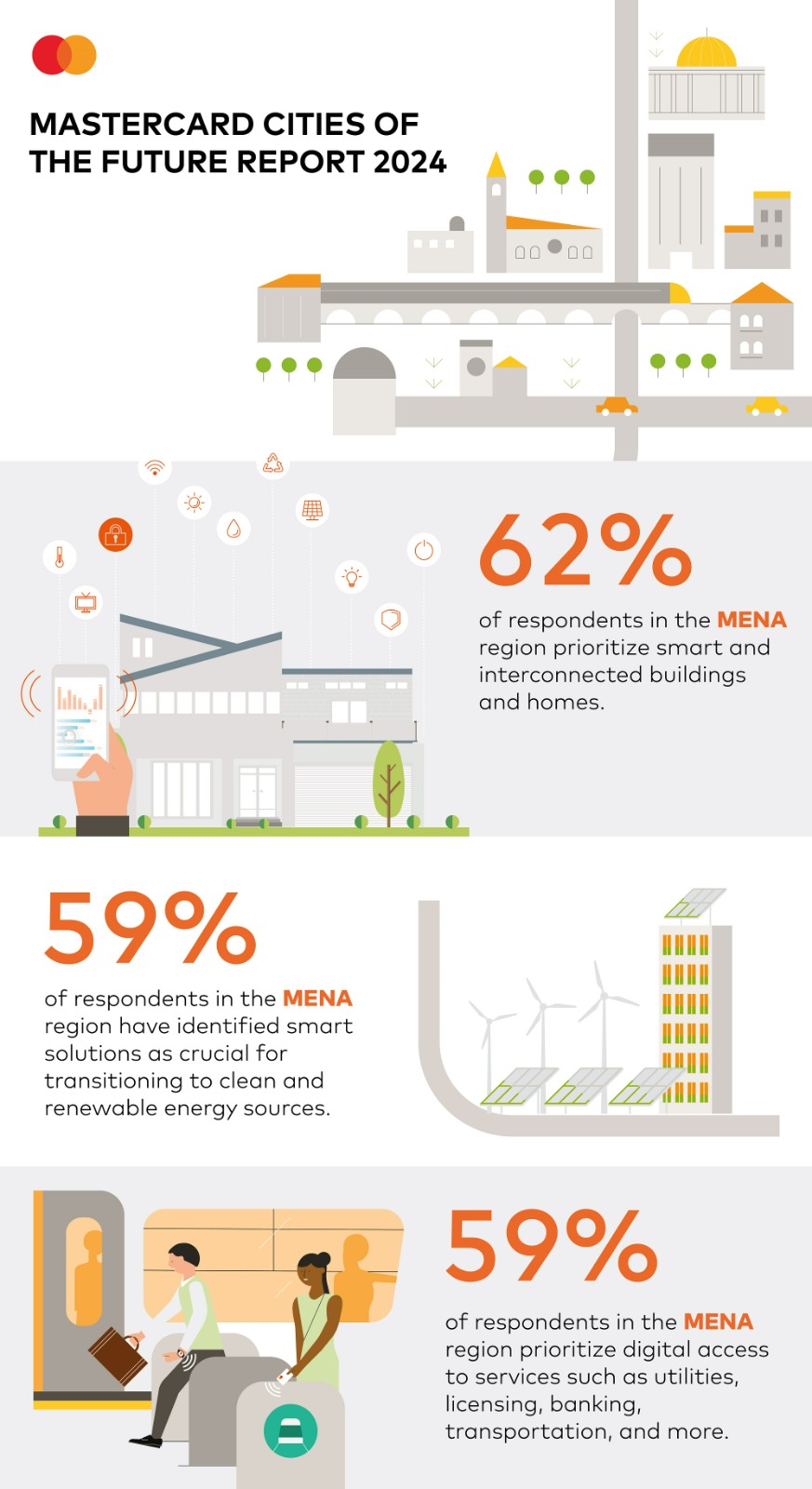Mastercard report finds human connections and technological innovation are key for Cities of the Future
- Publish date :
Thursday - pm 03:17 | 2024-03-28
Alanbatnews -
•The Mastercard Cities of the Future Report taps into the aspirations of urban inhabitants across Middle East and North Africa focusing on UAE, Saudi Arabia and Egypt.
•58% of respondents consider AI and machine learning the most important technologies to make future cities smarter.
Amman, Jordan.28March 2024– Three in four people would be happier living in a smart and connected city, according to a new report by Mastercard, which features insights related to human aspirations and technological progress for smart cities in the Middle East. By 2050, two-thirds of the world’s population will be living in urban areas, which places a renewed focus on urban living to ensure that the cities of the future are secure, sustainableand inclusive.
Mastercard Cities of the Future Reportrevealed thatrespondents in Egypt, Saudi Arabia and the UAE overwhelmingly agree that living in a smart city would make them happier(76%).
Priority innovations span connected buildings, smart travel and AI-powered services
The majority (62%) of respondents in Middle East and North Africaidentified smart and connected buildings and homes as the highest priority innovation, followed by smart travel services (61%).Technological advancements widely generate more optimism than worry. Becoming less physically active is the top concern, followed by reduced human interaction and the loss of traditional jobs. AI and machine learning (58%) are considered the most important technologies for future cities.
Increased sustainabilityemerges as an aspiration
Public awareness of the need for climate action is high, and smart solutions to transform to clean and renewable energy (59%) emerged at the top of the list of anticipated outcomesacross the MENA region. In the UAE and Saudi Arabia, 85% of respondents believe their cities are ‘maturing’ or ‘mature enough’.
Urban residents seek digital access to services, strong data security and super-app convenience
MENA residents would like to see digitization make their living environments, workplaces, and payment experiences, more efficient. Digital access to services like banking, utilities, and transportation tops (59%) the list of aspects that would enhance their daily living experience in a city. This is followed by strong privacy and secure personal data (58%) and a single digital platform (super-app) that integrates all services and information (53%).
Partnership crucial for urban innovation
Over the past year Mastercard has embarked on several initiatives with government entities, including the development of urban mobility. It is involved in the Riyadh Metro project, and also partnered with the Greater Amman Municipality to roll out Jordan’s first transit payment ecosystem, paving the way for seamless digital payments across the public transport network. In Dubai, alongside the UAE government, Mastercard is establishing a global Centre for Advanced AI and Cyber Technology to accelerate generative AI research.Mastercard partnered with the Administrative Capital for Urban Development to build the efficient digital infrastructure that will enable the New Administrative Capital to become Egypt's first cashless city. Through working with public andprivate sector partners, Mastercard helps develop solutions to advance sustainability, small business success, digital transformation, tourism development, education, and urban mobility.
For more data and insights, download the complete Mastercard Cities of the Future reportMastercard Cities of the Future Report 2024 | MENA.

